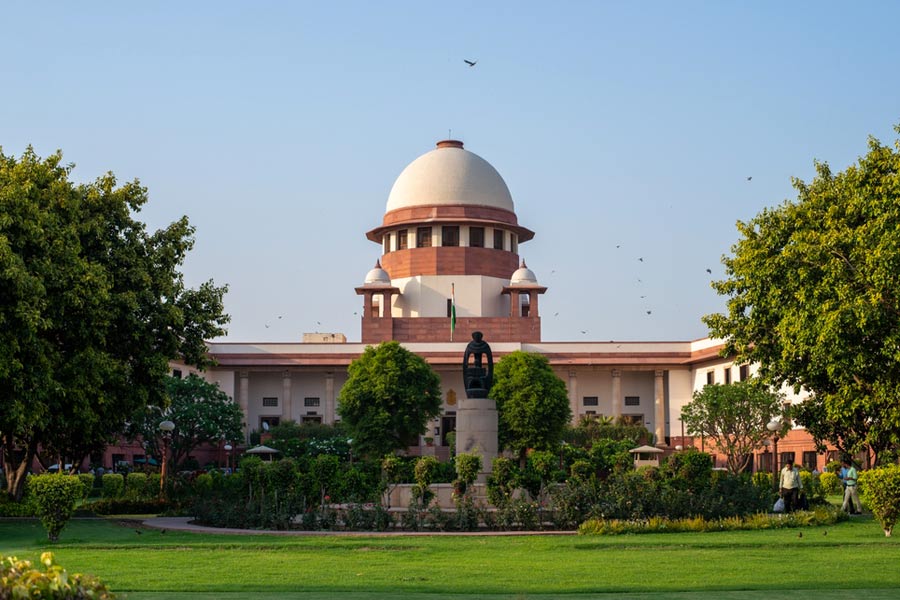The Supreme Court on Thursday directed all high courts to set up designated benches headed by the respective chief justices to monitor criminal trials against present and former MPs and MLA in special courts so that they “shall not adjourn the cases except for rare and compelling reasons”.
A bench led by Chief Justice of India D.Y. Chandrachud noted that although a judgment was passed in 2015 in a PIL filed in the Public Interest Foundation Vs Union of India case for expediting the trial against former and sitting lawmakers within one year, as many as 5,175 cases were pending as of November 2022, of which 2,116 cases were held up for over five years.
Since trials were not proceeding in a time-bound manner, advocate Ashwini Upadhyay has filed the present petition for expediting the trials against MPs and MLA, both former and sitting.
The bench, which included Justices P.S. Narasimha and Manoj Misra, issue the following directions:
◘ The chief justices of the high courts shall register a suo motu case with the title "In Re: designated courts for MPs/ MLAs" to monitor early disposal of criminal cases pending against the members of Parliament and Assemblies. The case may be heard by the special bench presided by the chief justice or a bench assigned by him.
◘ The special bench may list the matter at regular intervals as is felt necessary. The high court may issue such orders as are necessary for expeditious and effective disposal of the cases. The special bench may consider calling upon the advocate-general or the public prosecutor to assist the court.
◘ The high court may require the principal district and sessions judge to bear the responsibility of allocating the cases to such court or courts as is considered appropriate and effective.
The high court may call upon the principal district and sessions judge to send reports at such intervals as it considers expedient.
◘ The designated courts shall give priority to criminal cases against MPs and MLAs punishable with death or life imprisonment, then to cases punishable with imprisonment for 5 years or more, and thereafter hear other cases. The trial courts shall not adjourn the cases except for rare and compelling reasons.
◘ The chief justices may list cases in which trial has been stayed in order to vacate them and ensure that appropriate orders are issued to commence or conclude the trial.
◘ The principal district and sessions judge shall ensure sufficient infrastructure facilities for the designated courts and also enable them to adopt such technology as is expedient for effective and efficient functioning.
◘ The high courts shall create an independent tab on their website providing district-wise information about the details of the year of filing, number of cases pending and the stage of proceedings. While monitoring the cases, the special bench may pass such orders or give such additional directions as are necessary for early disposal.
CJI Chandrachud said: “These cases have a direct bearing on our political democracy. Hence, there is a compelling need to make every effort to ensure that these cases are taken up on priority and decided expeditiously. Confidence and trust of the constituency in their political representative, be it an MP or an MLA, is necessary for an interactive, efficient and effective functioning of a parliamentary democracy.
“However, such confidence is difficult to expect when figures... loom large in our polity. There are no two views about the compelling need to take up and dispose of the subject cases expeditiously. We have no doubt in our mind that even the political representative, be it MP or an MLA, involved in the prosecution would also seek a quick disposal...”
He added: “...We are of the opinion that there exist multiple factors. Each of these influences early disposal of the subject cases. This, coupled with their dissimilarity from State to State, makes it difficult for this Court to form a uniform or standard guideline for trial courts across the length and breadth of this country to dispose of the subject cases.
“... The High Courts have been dealing with these issues on the judicial as well as on the administrative side, and they are alive to the position that exists in each of their district courts. Under Article 227, the High Courts are entrusted with the power of superintendence over the district judiciary. We deem it appropriate to leave it to the High Courts to evolve such a method or apply such a measure that they deem expedient for an effective monitoring of the subject case.”











